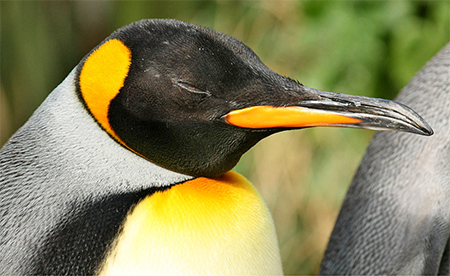 |
The penguins were aged seven to older than twenty years, and live in Singapore’s Jurong Bird Park, where animals that reach 75 percent of their lifespan are placed in a Senior Animal Care Plan for frequent health checks and specialized diets. When a veterinarian noticed cloudiness in the birds’ eyes and movements indicating that they were having difficulty seeing, the animal care team and veterinary ophthalmologist Dr. Gladys Boo decided to perform the surgery using implants rather than only removing the damaged lenses, which still would leave them with compromised vision.
Considering the penguins’ natural environment in the Southern Ocean and sub-Antarctic, it shouldn’t be surprising that they can develop cataracts. According to NASA, the southern hemisphere tends to have more UV exposure because of the ozone hole, a seasonal depletion of the ozone layer centered on the South Pole. There are also fewer particles of air pollution which help block UV. What’s more, snow reflects 60% to 90% of UV, and ice up to 75%. That’s nearly doubling exposure from the sun itself. And we know that the cumulative effects of sunlight and UV exposure are associated with cataract, the irreversible damage to the crystalline lens.
Dr. Boo believed that the large King and Humbolt penguins, which can weigh up to forty pounds and reach up to 39 inches in height, had eyes big enough and stable enough to hold the IOLs. Then came designing the IOLs. It took two months to develop the custom-made lenses in Germany to fit each penguin's eye. After the lenses were made, the penguins needed special transportation to keep them cool on the trip to the clinic, which included buckets of ice in air-conditioned vans. The surgery presented another challenge. Penguins have a third eyelid that protects their eyes underwater and tends to close during surgery. After overcoming those obstacles, the team performed successful surgeries.
After the surgery, the penguins had to remain out of water and stayed in a separate den from the rest of the colony to recover, as keepers administered eye drops twice daily. Zookeepers and vets said they observed “an increase in responsiveness and activity levels” in the penguins following the surgery, an indicator of improved vision and adapting well to the new lenses. The penguins made a full recovery two months after the surgery, and they are currently back with the rest of the colony in Jurong Bird Park.













